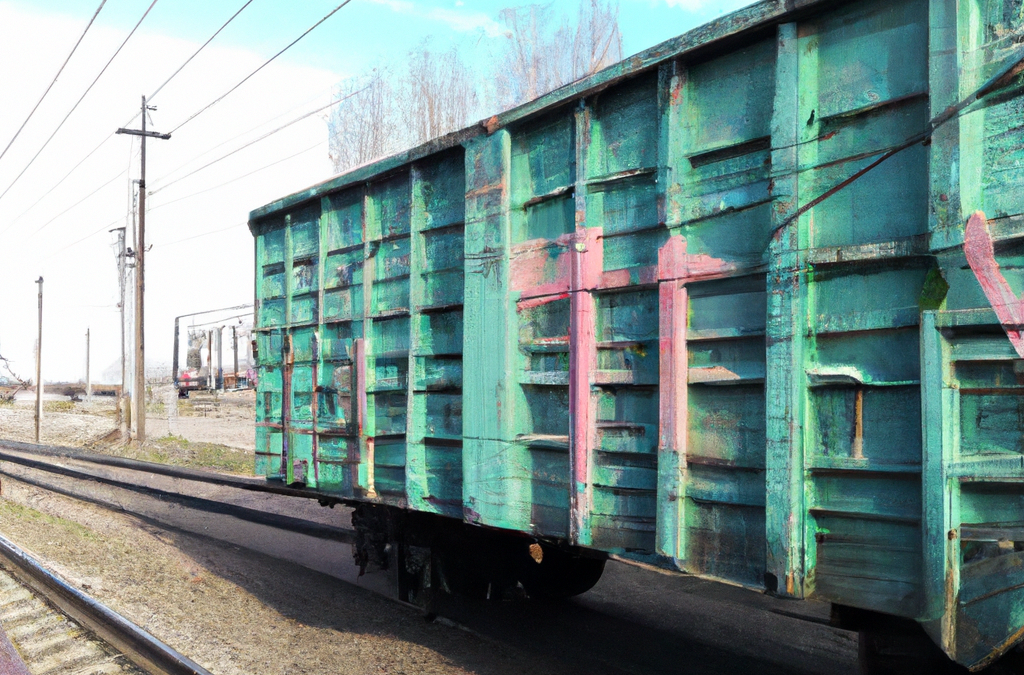In 2018, the Indian Railways has announced the launch of the General Purpose Wagon Investment Scheme (GPWIS) in a bid to attract private investment and modernise its wagon fleet. The scheme aims to provide an opportunity for private players to invest in the railway sector and help Indian Railways in meeting the increasing demand for freight transportation.
The GPWIS is a part of the Indian Railways’ efforts to enhance its freight transportation capabilities and improve its market share in the logistics sector. The scheme is expected to attract private investment worth 1000s of crores, which will be in the form of purchase and manufacture wagons, and will be operated and maintained by the private players. The scheme is open to all Indian companies, including public sector undertakings, and is expected to usher in efficiencies in the railway sector.
One of the major advantages of the GPWIS is that it allows private players to take advantage of Indian Railways’ vast network of tracks and infrastructure. This will enable them to obtain predictability in the cargo movement & avoiding bottlenecks created by paucity of rakes provided by Indian Railways (IR).
Indian Railways will provide 10% of rebate in freight rate to the entity participating in this scheme . The rebate shall be provided for upto 15 years.
Another advantage of the GPWIS is that it will help in reducing the financial burden on Indian Railways. The scheme will help to free up resources for Indian Railways to focus on other areas of its business, such as network expansion and modernisation.
Overall , the scheme is expected to benefit various stakeholders in the railway sector, including private players, customers, and Indian Railways itself. Private players will be able to participate in the growth of the railway sector, while customers will benefit from improved services, environmentally friendly transport and reduced costs. Indian Railways will also benefit from the scheme to enhance its capacity with focus on infrastructure.
However, the GPWIS also has some challenges that need to be addressed. One of the major challenges is the lack of awareness about the scheme among private players. Many private players are not aware of the benefits of the scheme and the opportunities it offers, which may limit the level of participation.
Then , the approval for the wagons must be obtained from Research Design & Standards Organisation (RDSO), an approving body of Indian Railways. The approvals by RDSO are understood to be a very slow process. In addition, the scheme does not cover specially designed wagons outside the standard types.
The scheme allows for restricted movement of cargo only on pre -approved circuits that can limit the attractiveness of scheme for the private sector. The limitation posed in the allowable routes may decrease the utilisation of wagons especially if the demand pattern changes.
Moreover, the rebate on the freight rate are subject to many conditions including early termination of GPWIS contract if the capital costs is recovered faster. The recovery formula is also based on the benchmarks set by railways which are not likely to be feasible for private sector as a standalone business.
Adding to these , the privately owned general purpose wagons will face lots of restrictions from handling cargo at existing good sheds owned by Indian Railways (IR). The scheme allows for untrammelled ( hopefully) movement to and from Private Sidings such as Private Freight Terminals, Mines , Ports etc. Of course, GPWIS operator has to submit acceptance by proposed private sidings.
Another challenge is the lack of a well-developed financing and leasing ecosystem for railway assets in India. This makes it difficult for private players to secure financing for the purchase and operation of wagons, which may limit their participation in the scheme. To address this challenge, Indian Railways needs to work with banks and financial institutions to develop a financing and leasing ecosystem for railway assets. Although, this particular problem is not insurmountable, Indian Railways (IR) have to become more business and investment savvy to attract financial institutions in the sector. IR has so far been thinking more as an operator rather than as a facilitator which must also change in order to attract private sector.
In conclusion, the General Purpose Wagon Investment Scheme (GPWIS) by Indian Railways is an ambitious initiative that aims to attract private investment and provide a boost to rail based logistics. The scheme is expected to bring in new practices, improve the overall efficiency of the railway sector and reduce financial burden on Indian Railways. The scheme may become a win-win situation for all stakeholders in certain situations and will help Indian Railways to meet the increasing demand for freight transportation in an environmentally friendly way. However, for full realisation of the potential of scheme financing ecosystem for railway assets needs to be more developed. This could happen if assumptions for applying freight rebates & setting policy contours may be consulted with financing agencies , operators and end users in an open and detailed manner.
Sources:
CONTACT US
For any queries on logistics, transportation & supply chain business and technology, please mail us at:

